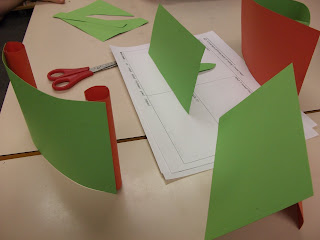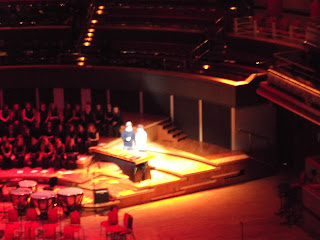Please leave a comment about the post you have looked at. We regularly view and publish your comments and would love to know what you think!
Wednesday, 27 February 2013
Data Handling in Maths
This week in numeracy we will be moving on to data handling.
Don’t forget to keep going with your time targets!
Tuesday, 26 February 2013
Learning about 2D shapes
This is what Miss Cranmer's group worked on in Monday's
lesson. It was tricky to make these 2D shapes!
Thursday, 21 February 2013
DON'T FORGET!
Our Sponsored Spell is on Friday 1st March. We hope that you are learning your spellings. Why not ask a family member or family friend to sponsor you per word or per test?
(IT ISN'T IF YOU LEARN THEM!!!!)
Wednesday, 20 February 2013
Maths Target - Have a go at telling the time!
Keep practicing telling the time - have a look at this link
below.
Our targets for next half term


This half term our reading targets will be:
MUST – I can find language that an author has used to make an effect.
SHOULD – I can find and talk about the language an author has used to make an effect.
COULD – I can talk about the effect words have on the reader.
This half term our writing targets will be:
MUST – I can choose interesting words from a word bank.
SHOULD – I can use lots of adjectives and verbs to add detail
COULD – I can add detail to give information about something I write about.
This half term in maths our targets will be about time:
MUST – use vocabulary related to time and be able to read the time to the nearest quarter of an hour.
SHOULD – use vocabulary related to time and be able to read the time to the nearest minute on a 12 hour digital clock and to the nearest five minutes on an analogue clock.
COULD - use vocabulary related to time and be able to read the time to the nearest minute on a 12 hour digital clock using am and pm and read the time to the nearest minute using am and pm on an analogue clock.
We will post lots of links to help but these are a nice start. Have a go!
http://nwlg.org/pages/resources/ma_num/swf/12-24Game.htmlhttp://www.oswego.org/ocsd-web/games/StopTheClock/sthec1.htmlhttp://www.oswego.org/ocsd-web/games/stoptheclock/sthec2.html
MUST – use vocabulary related to time and be able to read the time to the nearest quarter of an hour.
SHOULD – use vocabulary related to time and be able to read the time to the nearest minute on a 12 hour digital clock and to the nearest five minutes on an analogue clock.
COULD - use vocabulary related to time and be able to read the time to the nearest minute on a 12 hour digital clock using am and pm and read the time to the nearest minute using am and pm on an analogue clock.
We will post lots of links to help but these are a nice start. Have a go!
http://nwlg.org/pages/resources/ma_num/swf/12-24Game.htmlhttp://www.oswego.org/ocsd-web/games/StopTheClock/sthec1.htmlhttp://www.oswego.org/ocsd-web/games/stoptheclock/sthec2.html
Tuesday, 19 February 2013
OUR INSPIRE WORKSHOP
DON'T FORGET OUR MATHS INSPIRE WORKSHOP!
In RE we will be learning about...
This week in RE we will be looking at the story of the son
of the widow of Nain. This is a miracle story.
In Science we will be finding out about materials...
In Science this week we will learn about Materials.
Have a look at this video to find out what we take camping. What materials are
each of these items made from?
Coming up in LIteracy
I hope that you have remembered the story of Valiant!!
We will be using the story and characters in our next unit
of Literacy where we will be writing an adventure story.
This might refresh your memory!!
Friday, 15 February 2013
Well done Year 3
Sunday, 10 February 2013
We will use these in Literacy this week
We will be using these video clips as we continue our Visual Literacy work on Valiant.
Saturday, 9 February 2013
Tuesday is Shrove Tuesday

In the UK, Shrove Tuesday is also known as Pancake Day (or Pancake Tuesday to some people) because it is the one day of the year when almost everyone eats a pancake.
What is Pancake Day?
Pancake Day ( also known as Shrove Tuesday) is the last day before the period which Christians call Lent. It is traditional on this day to eat pancakes.
Why are Pancakes eaten on Shrove Tuesday?
Lent is a time of abstinence, of giving things up. So Shrove Tuesday is the last chance to indulge yourself, and to use up the foods that aren't allowed in Lent. Pancakes are eaten on this day because they contain fat, butter and eggs which were forbidden during Lent.
When is Shrove Tuesday (Pancake Day)?
Shrove Tuesday is celebrated the day before Ash Wednesday and is therefore the final day before the commencement of Lent, a Christian festival leading up to Easter Sunday (Easter Day).
Shrove Tuesday always falls 47 days before Easter Sunday.
Why do Christians call the day 'Shrove Tuesday'?
The name Shrove comes from the old word "shrive" which means to confess. On Shrove Tuesday, in the Middle Ages, people used to confess their sins so that they were forgiven before the season of Lent began.
What is Shrove Tuesday?
Shrove Tuesday is a day of celebration as well as penitence, because it's the last day before Lent. Throughout the United Kingdom, and in other countries too, people indulge themselves on foods that traditionally aren't allowed during Lent. Pancakes are eaten on this day because they contain fat, butter and eggs which were forbidden during Lent.
Friday, 8 February 2013
Next Wednesday is Ash Wednesday
a href="https://blogger.googleusercontent.com/img/b/R29vZ2xl/AVvXsEhcL0_3PaOSmipzwu4v3XAZdw2aMhEzS5lpg7T9Jnwsq3Y-QW0kjGDv5MFuH5YweMimhYi4NOrSwm2Hoay0Oti3BFGI99Z9UUvQ1HIKavybRAD0BiogHiRYSStIMJxjzxU4a3-tpo2uCLw/s1600/ash+wed.jpg">
What is Ash Wednesday?
Ash Wednesday is a Christian festival. It marks the beginning of six and a half weeks of being sorry and fasting in preparation for the most important Christian festival of Easter.
Why is it called Ash Wednesday?
Ashes are something that are left when something is burned.
For Christians, ashes are a symbol of being sorry for things they have done wrong and want to get rid of forever. It is also a reminder to them that we all come from ashes, and to ashes we all will return.
Why are ashes marked on the forehead?
For Christians, the marking on the forehead with ash marks the commitment to Jesus Christ and God. They wanted to show God that they were sorry for the wrong things they had done in the past year.
What happens on Ash Wednesday today?Many Christians will attend a religious service where the ashes are blessed and placed on their forehead.
Christians believe this marks the physical and spiritual beginning of a personal Lent season in which 40 days of repentance will begin leading up to the celebration of Easter Sunday.
What are the ashes made from?
In churches the priest first burns the palm that have been kept from last year's Palm Sunday and then mixes the ashes of these crosses with holy water (which has been blessed) to make a greyish paste. When people go to church on Ash Wednesday, the priest dips his thumb in the paste and uses it to make the sign of the cross on each person's forehead. Why are last years Palm Crosses recycled?
Palm Sunday celebrates Jesus's triumphant entry into Jerusalem, so when the crosses used in the last years Palm Sunday service are converted to ashes, worshippers are reminded that defeat and crucifixion swiftly followed triumph.
What do the ashes symbolise?Using ashes to mark the cross on the believer's forehead symbolises that through Christ's death and resurrection, all Christians can be free from sin.

What is Ash Wednesday?
Ash Wednesday is a Christian festival. It marks the beginning of six and a half weeks of being sorry and fasting in preparation for the most important Christian festival of Easter.
Why is it called Ash Wednesday?
Ashes are something that are left when something is burned.
For Christians, ashes are a symbol of being sorry for things they have done wrong and want to get rid of forever. It is also a reminder to them that we all come from ashes, and to ashes we all will return.
Why are ashes marked on the forehead?
For Christians, the marking on the forehead with ash marks the commitment to Jesus Christ and God. They wanted to show God that they were sorry for the wrong things they had done in the past year.
What happens on Ash Wednesday today?Many Christians will attend a religious service where the ashes are blessed and placed on their forehead.
Christians believe this marks the physical and spiritual beginning of a personal Lent season in which 40 days of repentance will begin leading up to the celebration of Easter Sunday.
What are the ashes made from?
In churches the priest first burns the palm that have been kept from last year's Palm Sunday and then mixes the ashes of these crosses with holy water (which has been blessed) to make a greyish paste. When people go to church on Ash Wednesday, the priest dips his thumb in the paste and uses it to make the sign of the cross on each person's forehead. Why are last years Palm Crosses recycled?
Palm Sunday celebrates Jesus's triumphant entry into Jerusalem, so when the crosses used in the last years Palm Sunday service are converted to ashes, worshippers are reminded that defeat and crucifixion swiftly followed triumph.
What do the ashes symbolise?Using ashes to mark the cross on the believer's forehead symbolises that through Christ's death and resurrection, all Christians can be free from sin.
Maths link
Here is a fun way to remember 3d shapes. Can you tell me the
names of any others?
Look at these links to test your logic and thinking skills!
Can you do the inverse?
http://www.hellam.net/maths2000/thinkno2.html
Can you use your logic skills?
http://www.kidspsych.org/farm.html>
Look at these links to test your logic and thinking skills!
Can you do the inverse?
http://www.hellam.net/maths2000/thinkno2.html
Can you use your logic skills?
http://www.kidspsych.org/farm.html>
Thursday, 7 February 2013
Tuesday, 5 February 2013
Monday, 4 February 2013
Well Done Everyone!
Well done Year 3! Our trip today to the Primary Proms at the Symphony Hall was great fun and a wonderful experience. Which was your favourite part?
Saturday, 2 February 2013
Coming up in RE
We will be using this video in our lesson on Friday.
Here is an example of a Gospel Story.
In our last RE lesson we looked at different types of Gospel story. Can you tell me what type of story this is?
Here is an example of a Gospel Story.
In our last RE lesson we looked at different types of Gospel story. Can you tell me what type of story this is?
Friday, 1 February 2013
What will we be doing next in Literacy?
Subscribe to:
Comments (Atom)
























